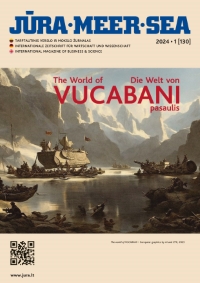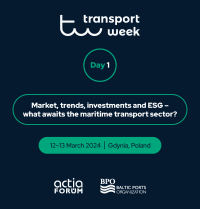Following the success of the 9th Cool Logistics Global Conference and Exhibition in Algeciras, Cool Logistics returns to Antwerp for its 10th anniversary edition, providing a good opportunity to look back at some of the key findings of this year's event.
Marking a significant mood change following years of frustrated attempts to raise reefer box rates a consensus arose amongst the 170 conference delegates polled during the Algeciras conference which indicated a new kind of optimism: the perishable logistics sector may finally be able to gain the upper hand in negotiations with shippers of commodities such as bananas, pork and other food items.
More exhibits including reefer boxes from Hapag Lloyd, Daikin and Kuehne + Nagel and a growing participation from the global ports sector served to underline the upbeat mood at the Algeciras event this year.
As a result of increasing consolidation in the container shipping sector customers are also facing a second year of reefer equipment shortage, producers and exporters of perishables were told that shipping could become more expensive in the future.
Although the container sector is still losing money the latest estimates show demand growth outstripping supply for the second consecutive according to Thomas Eskesen of Eskesen Advisory, adding that "new orders have been limited whilst delivery postponements and scrapping continue to take out capacity".
Eskesen warned that despite the Hanjin bankruptcy last year and the realignment of container shipping alliances the process of consolidation of the shipping sector was far from over.
Although Robert Sappio, CEO of Seacube, sounded more cautious about reefer box availability, he too predicted a shortage lasting into the first half of 2018. Nevertheless reefer trades are set to grow between 3% next year, according to Drewry and % according to Seabury.
Bigger ships continue to be built, as the recent order by CMA CGM of 6 x 22,000 Teu vessels has yet again proven. By 2020, 81% of container vessels will be in the 10,000 Teu + range as Ole Schack Petersen, chief strategy officer of LCL mentioned in his opening remarks of the conference. This is likely to have a significant impact on secondary trade routes such as the traditionally 'reefer-heavy' South North routes he maintained. As a result pressure on ports on both Latam East and West Coast will become palpable in the years to come.
Meanwhile shippers are not likely sit on their hands. Walter Vermeer, Manager Logistics Procurement of Friesland Campina complained that shipping service levels were under pressure. He also criticised the relentless cost cutting in the shipping and logistics sector, often at the expense of service efficiency. Vermeer also presented a new shipper-driven initiative designed to reward greener logistics solutions. Dubbed BICEPS, the new initiative is backed by heavy-weight cargowners such Friesland Campina, Vion, Lamb Weston, AkzoNobel and DSM.
The main theme addressed at this year's Cool Logistics Global Technical workshop was the need for far more effective waste reduction covering various topics ranging from energy conservation and both production and distribution level and better use of asset utilisation by means of improved asset tracking.
Not only shipping, but also reefer trucking, ports and terminals handling fresh and frozen perishable commodities as well as cold stores and 3pls have to find better ways to reduce waste in the Logistics chain itself.
An important benchmark for the industry has been set by Maersk's remote reefer monitoring system although the company preferred not to comment about how much reefer claims have actually been reduced by offering shippers greater visibility.
Clearly the logistics sector has its workload cut as new algorithms are being developed to improve predictability and risk calculation. Martin Ramos of Route Monkey for example claimed that there are potentially massive savings that could help develop far better truck utilisation.
Advances in sharing energy resources were highlighted by Chayenne Wiskerke, a leading onion exporter and LambWeston a frozen chip producer. Wiskerke also provided a glimpse of the tremendous potential that could be offered by the adoption of block chain technology, although much more work will be needed to fully explore its impact on the perishable supply chain.
Other outstanding issues include the need to fuse transparency and accountability with the greater emphasis on combating cyber crime. These and other issues will be revisited at the 10th Cool Logistics conference in Antwerp 2-4 October 2018.
10th Cool Logistics Global










